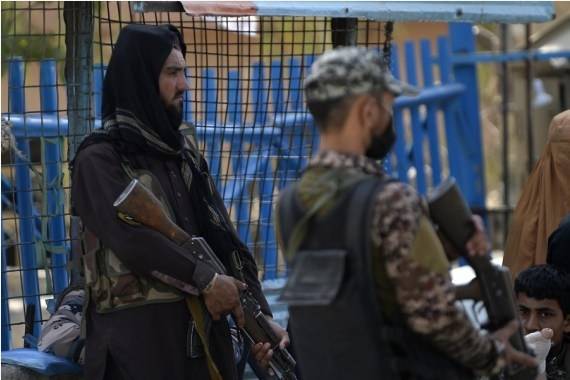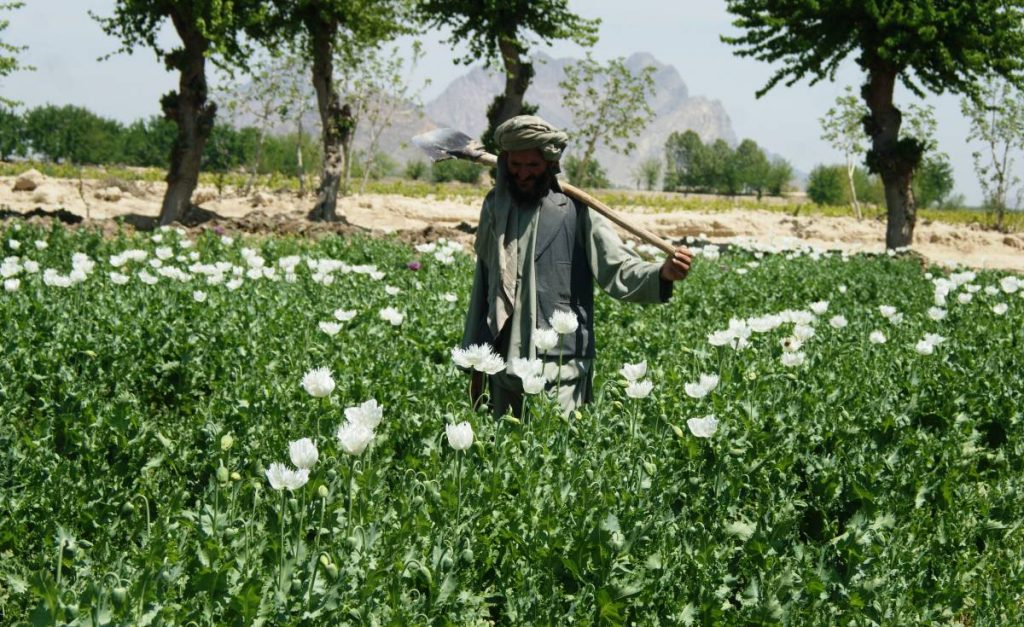
Afghanistan is the world’s largest opium producer, accounting for about 87 per cent of the global production and much of the Afghan opium is processed into heroin in labs in Pakistan before flooding the European market….reports Asian Lite News
After the Taliban assumed power in Kabul, a fresh threat has emerged and that is heroin from Afghanistan, which has started flooding global markets and motivating narco-terrorism, making a severe threat to peace, a report said.
Afghanistan is the world’s largest opium producer, accounting for about 87 per cent of the global production despite a USD 9 billion effort over a two-decade period by the United States (US) to deter illegal production in the country, European Foundation for South Asian Studies (EFSAS) said in a report.
Soon after coming to power on August 15, Taliban spokesman Zabiullah Mujahid had said that “Afghanistan will not be a country of cultivation of opium anymore. However, he added that “it is only possible when the whole world helps us in empowering the farmers and providing them with an alternative to earn their livelihood”, according to the report.

The Global Initiative Against Transnational Organized Crime, a network of more than 500 experts on organized crime drawn from law enforcement, academia, conservation, technology, media, the private sector and development agencies, argued that “Ultimately, the new Taliban promises to ‘end drug smuggling’ are seen by observers as overtures to the international community, and part of a strategy to entice foreign aid back to the country and alleviate the economic crisis, rather than a commitment to counternarcotics policy”, the report added.
Much of the Afghan opium is processed into heroin in labs in Pakistan before flooding the European market. Hamid Mir, in his article in The Washington Post, asserted that Pakistan is on the front lines of the Afghan drug trade. Forty per cent of Afghan drug trafficking utilizes routes passing through Pakistan, the report read.

Using an example from Africa, John Godfrey, a US counterterrorism envoy, highlighted the added danger of an expansive trade in drugs eventually morphing into narco-terrorism. He pointed out the “nexus between terrorism finance and narcotics trafficking in Mozambique that’s particularly problematic” in relation to the US designation of the Al Sunnah wa Jama (ASWJ) as a foreign terrorist organization. As General Dan McNeill, commander of the NATO-led International Security Assistance Force (ISAF) in Afghanistan, eloquently asserted, “When I see a poppy field, I see it turning into money and then into IEDs, AKs, and RPGs”, according to EFSAS.
The EFSAS report further emphasised that therefore, there is an urgent need for the international community to wake up to the dangerous challenges that lie ahead for it if it does not do enough now to prevent the Taliban-inspired surge of Afghan heroin and meth in distant and vulnerable shores all across the world. (ANI)
ALSO READ: Secret deals; Imran digging hole for himself
ALSO READ: It’s time for India to send seeds of hope and trust to Afghanistan


